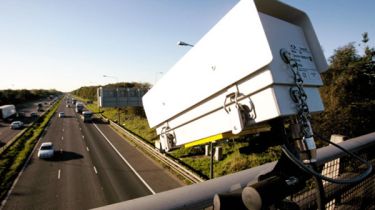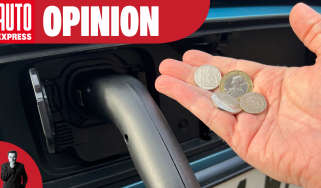CCTV helps raise £312million in parking and traffic fines
Fixed and mobile CCTV cameras have brought in hundreds of millions of pounds for councils

Councils across the UK have raised hundreds of millions of pounds by using CCTV to issue parking and traffic fines on an industrial scale.
Figures obtained by research group Big Brother Watch under a Freedom of Information request revealed that councils imposed around £312 million of fixed penalty notices for traffic offences between March 2008 and March 2013.
They found that a number of local councils used CCTV cameras to monitor traffic offences and contraventions - around 36 local authorities used static CCTV, whilst at least 58 local authorities used mobile CCTV.
• Uninsured drivers escaping with small fines
The number of local councils using mobile CCTV has grown by 87 per cent since 2009, despite a government code of practice stressing that CCTV should only be used ‘sparingly’ to capture traffic offences.
Brandon Lewis, Minister for Local Government, said: ”It is clear that CCTV is being used to raise money in industrial volumes for town halls, breaking the constitutional principle that fines should not be used as a source of revenue.”
London boroughs profited the most by issuing around 90 per cent of these fines – an equivalent of around £285million. Camden earned the most revenue, whilst Ealing, Lambeth, Westminster and Harrow followed closely behind.
• UK number plates could be scrapped under new EU law
Traffic wardens sitting in CCTV control rooms may have issued some tickets illegally by failing to follow legal process under the Regulation of Investigatory Powers Act 2000 for directed surveillance operations.
Emma Carr, deputy director for Big Brother Watch, said: “The Government should urgently investigate whether or not the use of cameras to snoop on motorists breaches surveillance laws, particularly where a traffic warden sits in a control room looking for motorists to ticket.
“The fact that no councils publish proper statistics about how these cameras are used highlights that many know that their CCTV operation is about raising money, not public safety.”
Peter Box, chair of the Local Government Association’s Economy and Transport Board, disputes these claims: “It is frustratingly familiar to hear Big Brother Watch again peddling the myth that councils are enforcing parking regulations just to raise money.
“Road safety campaigners, schools, disability and pedestrian charities and councils have all come together to warn the Government that banning CCTV parking enforcement will put school children and disabled pedestrians at risk and worsen road safety.”


